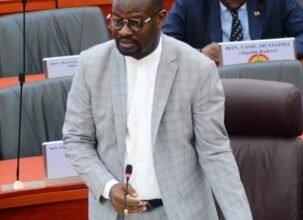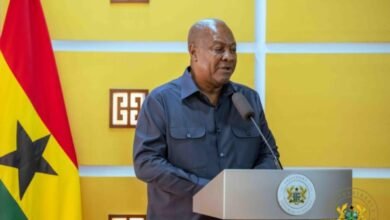Dr. Domfe Credits Ofori-Atta for Ghana’s Economic Stability

Development Economist and Senior Research Fellow at the Centre for Social Policy Studies (CSPS) at the University of Ghana, Dr. George Domfe, has credited Ghana’s ongoing economic recovery to the decisive policies implemented by former Finance Minister, Ken Ofori-Atta.
Dr. Domfe, who is also the Founding President of the Africa Policy Lens (APL), emphasised that the decision to embark on a comprehensive debt restructuring programme during a period of severe economic distress has played a pivotal role in stabilising the country’s economy.
“One reason to praise Ken Ofori-Atta is the debt restructuring programme. As a result, foreign currency outflows used to service external interest payments and amortisation have drastically reduced. These are the kinds of strategic decisions that deserve national recognition,” he stated.
According to him, without the Domestic Debt Exchange Programme (DDEP) and other crucial reforms initiated by Ofori-Atta, Ghana’s current macroeconomic progress would not have been possible.
“The IMF programme has helped bolster the Bank of Ghana’s reserves, which in turn created the space for the central bank to inject nearly $1 billion into the forex market over two months,” he noted.
He further explained that Ghana’s current exchange rate system — a managed floating exchange rate regime — requires periodic intervention by the Bank of Ghana (BoG) to stabilise the cedi. The ability to intervene effectively, Dr. Domfe said, was made possible by the increase in foreign reserves, largely attributed to Ofori-Atta’s policies.
“You can’t give what you don’t have. The Bank of Ghana is now able to protect the cedi because it has more reserves — reserves built through policy interventions led by Ken Ofori-Atta,” he said.
Responding to whether the Finance Ministry and BoG could have acted earlier, Dr. Domfe acknowledged that similar interventions were unlikely under the previous economic environment.
“Yes, the previous administration could have done the same, but the external conditions then weren’t favourable. Dr. Ernest Addison once mentioned he could bring the dollar rate to GHS10, but at that time, it wasn’t necessary,” he recalled.
Dr. Domfe also cited several reasons behind the reduced demand for foreign currencies today, including:
- A fall in global crude oil prices, reducing foreign exchange needs for oil imports;
- Government’s halt on payments to contractors;
- Delays in statutory disbursements;
- Increased inflows from gold exports and remittances.
He explained that these factors have combined to improve foreign currency supply, making the BoG’s interventions more effective.
Additionally, he highlighted the benefits of the debt restructuring agreement with bondholders, noting a 37% reduction in the nominal value of Ghana’s debt — equivalent to US$5 billion — and US$4.3 billion in debt service savings during the IMF programme. Interest rates on bonded debt also declined from an average of 8% to below 5%.
Dr. Domfe concluded by saying Ghana is now better positioned for sustainable growth.
“With these significant achievements, the government can now shift focus toward sustainable economic development. It’s a testament to our commitment to recovery and a foundation for improved fiscal management going forward,” he said.
Credit: Joy Business




